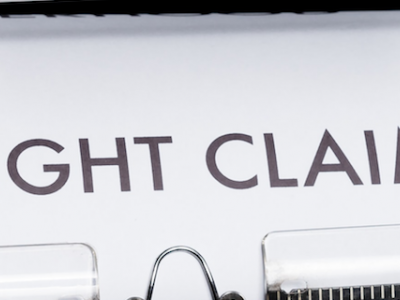What do you study in an Intellectual Law LL.M.? Intellectual property law—often just called “IP” law—serves to protect the rights of the people who have created artwork, or who own patents, trademarks, and other intellectual property. As you might imagine, the legal issues involved in this area can be thorny—especially in the age of the Internet, when artistic works are shared every day, sometimes legally, and sometimes not—and experienced IP lawyers are often needed to do everything from filing patent applications to drafting licensing agreements, and even defending trademark owners from infringement in court. IP lawyers are increasingly in demand for cases involving technology; see the Top 10 LL.M. Programs in Technology Law here.
An LL.M. program in Intellectual Property Law can help legal professionals get caught-up with current laws around patents, copyrights, and antitrust issues; some LL.M.s might even delve into specific fields where IP law applies, such as entertainment law. Fortunately, there are many career opportunities for a legal professional who has an LL.M. in Intellectual Property Law. Indeed, there are entire law firms dedicated to IP law; jobs can also be found in the legal departments of non-legal firms that own or manage artistic works, technology, or other intellectual property.
Below are the best LL.M.s in IP Law.
Founded in 1967, the World Intellectual Property Organization is an agency of the United Nations that serves as a policy forum for IP issues. The organization has also funneled its vast knowledge of IP issues into an LL.M. in Intellectual Property, which it jointly runs with the International Training Centre of the International Labor Organization. For students who want to work in IP rights practice, or teach, the LL.M. covers a range of significant topics, from copyright to unfair competition and patents.
View School Profile
GW Law has been teaching IP law for a very long time: the school established a Master of Patent Law program in 1895, back around the time when Nikola Tesla filed a patent for the remote control, and the smoke detector was patented. Today, the school’s LL.M. in Intellectual Property Law helps students skill-up in many contemporary issues in the field: electives cover everything from law in cyberspace to chemical and biotech patent law. In terms of research capacity, the school hosts the Dean Dinwoodey Center for Intellectual Property Studies, which focuses on IP law both domestically and internationally. The school is currently ranked as one of the top 10 for IP law in the publication US News and World Report.
View School Profile
Near the tech hubs of San Francisco and Silicon Valley, Berkeley has established itself as a leader in the IP law space. Indeed, the school is typically ranked at or near the top of the very top of US News’ best law schools for intellectual property law ranking. Since 1995, the school has hosted the Berkeley Center for Law & Technology; IP-minded LL.M. students can choose to pursue Berkeley’s Law & Technology Certificate.
View School Profile
Stanford students can study the school’s LL.M. in Law, Science & Technology, right in the heart of Silicon Valley, where technology issues run up against IP laws in startups and more established tech firms on a daily basis. And the school addresses various aspects of this dynamic intersection with several centers, including the Center for E-Commerce and the Center for Law and the Biosciences.
View School Profile
American University’s Washington College of Law (WCL) offers a standout LL.M. in Intellectual Property and Technology, standing as a beacon for those passionate about this dynamic field. In partnership with IP policy research centers like the Program on Information Justice and Intellectual Property (PIJIP), WCL provides unparalleled opportunities for engagement and exploration in intellectual property law. PIJIP, a cornerstone of WCL's academic landscape, is known for its contributions to intellectual property and information law research. With expertise spanning copyright, patent, trademark, trade secret, cyberlaw, and international IP, PIJIP's prolific faculty members offer a wealth of knowledge and experience to students. The LL.M. program, complemented by one of the US’ oldest IP Clinics, provides a comprehensive curriculum . WCL's impact program, fostered by PIJIP, serves as a vital platform for research and public discourse on global intellectual property policy issues, reinforcing the school's reputation as a leader in the field. The school is also ranked among the top 10 law schools for IP law by US News.
View School ProfileTexas A&M School of Law offers a top Intellectual Property (IP) Law Graduate Program, featuring LL.M. and MLS degrees tailored to meet the demands of the global economy. The school consistently ranks among the top 10 in the United States according to U.S. News and World Report. LL.M. students benefit from a comprehensive curriculum covering over 20 specialized IP law courses. The school's strategic location in the Fort Worth/Dallas area provides ample opportunities for professional growth and networking.
View School Profile
One of the leading law schools in Scotland, Edinburgh Law School hosts the Scottish Research Centre for IP and Technology Law—known as SCRIPT—which looks at the interplay between technology, law, and society. The school offers an LL.M. in Intellectual Property Law, in both in-class and online formats.
View School Profile
"IP Osgoode,” a noted research center at Osgoode Hall Law School, delves deep into legal intricacies at the dynamic crossroads of intellectual property and technology. While the full-time LL.M. program at the school doesn't feature a specialization in IP law, aspiring legal professionals can pursue a part-time Professional LL.M. in Intellectual Property Law. This program caters to individuals seeking to enhance their expertise in this rapidly evolving legal domain while maintaining their professional commitments.
View School ProfileSanta Clara University’s School of Law stands as a premier destination for those seeking expertise in intellectual property law, offering a distinguished LL.M. program in Intellectual Property. Situated in the heart of Silicon Valley, the epicenter of technological innovation, Santa Clara Law provides close real-world access for those looking to see IP law in action. At Santa Clara Law, students in the LL.M. program benefit from the school's close proximity to industry giants and startups alike, gaining invaluable insights and networking opportunities within this dynamic ecosystem. The High Tech Law Institute, housed within the school, further enriches the academic experience, offering a wealth of resources and programs dedicated to cutting-edge legal issues in the technology sector. The school is also ranked highly for IP law by US News and World Report.
View School Profile
UniSA offers one of the few dedicated LL.M. programs in Intellectual Property Law in the region. And there’s more: Through a partnership with the WIPO Academy, the school also offers an online distance learning specialization in IP law.
View School ProfileRelated LLM News
Related Articles
Thriving Patent Law Expands Post-LL.M. Career Opportunities
Nov 12, 2021
IP law firms and tech groups are offering law school graduates lucrative salaries and fast-moving careers in areas such as electric vehicles and data analytics
Technology Law LL.M.s: Shaping the Future of Tech
Sep 18, 2020
In a dynamic and rapidly evolving field, demand for trained talent remains robust during the coronavirus crisis
Not Just Catwalks: A Closer Look at Fashion Law LL.M.s
Jan 09, 2018
Here’s an in-depth look at some of the fashion LL.M. programs offered, and what it takes to break into the industry.
5 Questions on Fashion Law—Susan Scafidi
Nov 13, 2017
Susan Scafidi, head of the Fashion Law Institute, talks to us about what actually goes into being a lawyer working in the industry, and how to break in.




-c19f8.png)


-d00ec.jpeg)






